Exclusions that reflect environmental and social values



See responsiblereturns.com.au and RIAA's Financial Services Guide for details.1
1 The Responsible Investment Certification Program provides general advice only and does not take into account any person’s objectives, financial situation, or needs. Neither the Certification Symbol nor RIAA recommends to any person that any financial product is a suitable investment or that returns are guaranteed. Because of this, you should consider your own objectives, financial situation and needs and also consider the terms of any product disclosure document before making an investment decision. Certifications are current for 24 months and subject to change at any time.
investment exclusions
In addition to our fund-wide approach to responsible investment, the Sustainable Growth investment option applies a broader range of exclusions so you can invest your super savings in a way that aligns with your environmental and social values.
Any company that:
• derives any revenue from the mining or exploration of thermal coal; any revenue from the extraction, production, refining of conventional and unconventional oil and gas; has any total volume proved and probable reserves of thermal coal and metallurgical coal; or, has any total volume of proved reserves of oil and gas^^;
^^Thermal coal includes lignite, bituminous, anthracite and steam coal and its sale to external parties. It excludes: revenue from metallurgical coal; coal mined for internal power generation (e.g. in the case of vertically integrated power producers); intra-company sales of mined thermal coal; and revenue from coal trading. The data received from our external provider for the purpose of oil and gas screening aggregates conventional and unconventional oil and gas reserves of each company screened.
• derives 15% or more revenue from the generation of electricity from fossil fuels; 15% or more revenue from oil and gas pipelines and/or transportation; 15% or more revenue from the distribution and/or retailing of conventional and unconventional oil and gas; or
• derives 15% or more revenue from equipment and/or services for the exploration and production of conventional and unconventional oil and gas; or
• derives 50% or more revenue from indirect services to the fossil fuel sector. For example, the provision of specific materials, contracted services and transportation.*
* The option holds a very limited number of companies within the private equity asset class that generate >50% of their revenue from the provision of services to the oil and gas sector. While some of these assets have been exited to-date, due to the illiquid nature of the assets, further time is required to exit the remaining assets. This is anticipated to occur by July 2025.
Any company that:
Any company that owns or operates active uranium mines.
Any company that manufactures whole weapon systems or components developed for exclusive use in cluster munitions, anti-personnel mines, biological or chemical weapons.
Any company that manufactures whole weapon systems or components developed for exclusive use in nuclear weapons.
Any company that derives 5% or more revenue from military weapons production, civilian firearm production or retailing.
Any company that provides the services of asylum seeker detention centres or for-profit prisons, e.g correctional facilities.
Any listed company that scores a ‘CCC’ ESG rating. Companies are ranked from best (AAA) to worst (CCC).
Ratings are determined by how well a company manages material environmental, social and governance (ESG) risks compared with sector peers.
For more information on ESG ratings, visit msci.com/sustainable-investing/esg-ratings.
Any company that derives 10% or more revenue from the production and/or distribution of palm oil and has less than 50% Roundtable of Sustainable Palm Oil (RSPO) certified oil.
The RSPO certification requires companies to adhere to a strict set of principles and criteria for sustainable palm oil production.
Any company that derives 5% or more revenue from the operation, licensing, and provision of key products or services fundamental to gambling operations.
Any company that derives 10% or more revenue from the long-distance transport and/or export of animals for the purpose of selling live animals for slaughter, husbandry and breeding subjects, including specialised transportation services.
Applicable to global securities, any country that scores a ‘CCC’ ESG rating. Our data provider scores and ranks countries from AAA (best) to CCC (worst). Ratings are determined by how well a country manages underlying factors across environmental, social and governance (ESG) issues. This exclusion also captures sub-national local authorities (such as states and provinces) who are exposed to similar ESG risks as countries.
For more information on ESG ratings, please visit msci.com/sustainable-investing/esg-ratings.
The application of these exclusions may result in greater concentration of assets held and volatility. While the exclusions will be applied across all asset classes wherever possible, there are some exclusions and data sources for which only listed company information is available.
Implementation of the exclusions is based upon data supplied by external data providers and may be affected by the accessibility and accuracy of data, implementation delays where there has been a material change to the nature of an investment, or an error by an external service provider.
There may be limitations in the application of exclusion data related to listed companies with unlisted funds and assets.
In the event of a merger, HESTA may also receive investments that were previously not subject to our investment restrictions and exclusions. Further, through its use of derivatives or through collateral received as a result of its investment activities, HESTA may be exposed to investments that are the subject of its investment restrictions and exclusions.
These factors may result in HESTA directly or indirectly holding or being exposed to excluded companies, typically over the short term, which will be removed or managed on a case-by-case basis taking into account matters such as available options, liquidity, market conditions, investment fund structure, and best financial interests of members.
Where revenue thresholds apply to exclusions, external data providers use the definition of revenue as being the gross inflow of economic benefits arising from the course of the ordinary activities of an entity which generally accords with the International Accounting Standards definition found in IAS 18 and IFRS 15. In the absence of such data, they consider net sales or operating revenue as reported by the company in its financial statements for the purpose of revenue estimations.
Find out more about our exclusions in Investment choices (PDF).
Sustainable Growth option average annual return: 10 years (p.a.)
* Average annualised return. Returns shown are for the Sustainable Growth super option. The returns for Sustainable Growth Income Stream option will differ. The returns shown are net of investment fees and costs, transaction costs and taxes.
Investments may go up or down. Past performance is not a reliable indicator of future performance.
The Sustainable Growth investment option seeks to contribute to positive outcomes through tilting investment towards companies and assets that aim to contribute towards achievement of one or more of the United Nations Sustainable Development Goals (SDGs).
To track the progress of our capital allocation in support of the SDGs, we subscribe to the Sustainable Development Investments Asset Owner Platform (SDI AOP)1 .
The platform identifies the percentage of a company’s revenue aligned to underlying SDG targets, according to an agreed taxonomy1 and allows us to measure the level of SDG alignment of the investment portfolio.
As at 30 June 2024, 87% of funds under management of HESTA’s Sustainable Growth option were managed through SDG tilted or thematically aligned strategies, with cash and government bonds comprising the majority of the remaining funds under management for the option.
The insight this data provides helps HESTA to better manage risk across the Sustainable Growth portfolio and allocate capital in support of positive social and environmental outcomes.
| SDGs | Our focus areas of impact |
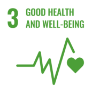 |
|
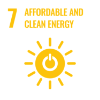 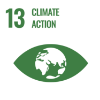 |
|
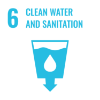 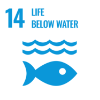 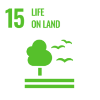 |
|
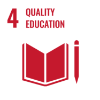 |
|
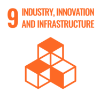 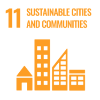 |
|
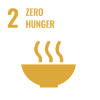 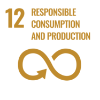 |
|
1 Information on the taxonomy can be found at https://www.sdi-aop.org/sdi-classification/
*The SDG contribution is based on the Sustainable Development Investment Asset Owners Platform (SDI AOP) taxonomy and calculates contribution by the percentage of company revenue attributed to each SDG multiplied by Sustainable Growth’s total dollars invested. Information on the taxonomy can be found at sdi-aop.org/sdi-classification.
Through our investment partner Generation, we're investing in sustainable transport solutions.
You can read more about how investments in the Sustainable Growth option deliver positive environmental outcomes while contributing to SDG 7 Affordable and Clean Energy and SDG 13 Climate Action.
Gogoro is a Taiwan based provider of electric scooters, replaceable battery packs and battery swapping stations. They have developed an innovative solution to vehicle electrification for dense urban areas.
Electrification of transport vehicles is a significant market trend that will drive tangible environmental efficiencies, with Asian markets especially tuned towards scooter modalities.
Generation believes that Gogoro, with its differentiated product and brand, is well placed to capitalise on the movement towards electrification of mobility solutions. There is significant room for growth in the urban transit electrification market, which is taking place at a rapid pace in Asian cities where scooters are integral modes of transport.
Electric vehicles are a key mobility solution and offer a low carbon transport option. We estimate that, between 2015 and 2018, Gogoro's operations reduced CO2 emissions by 39,060 metric tons, predominantly due to reduced fuel dependency.
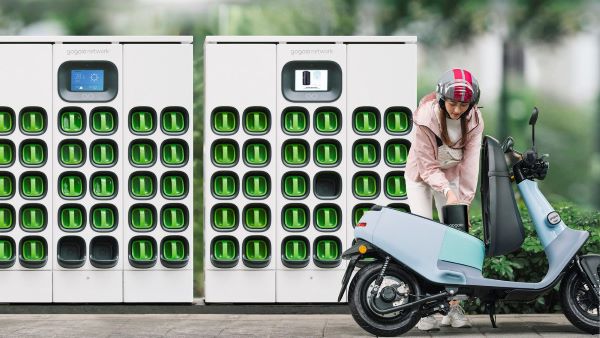
Invested with active credit managers that seek to tilt investment toward companies whose activities are thematically aligned with one or more SDGs4 or that have stronger than average responsible investment practices relative to peers. Investments may include green labelled bonds or sustainability-linked bonds. Cash and sovereign debt managers apply the exclusions as described in Investment choices (PDF).
Managed by investment managers that seek to invest in companies whose activities are thematically aligned with one or more SDGs4 or that have stronger than average responsible investment practices relative to peers.
Investments in property will focus on assets whose activities are thematically aligned with one or more SDGs4 or will be assets managed by managers with above average responsible investment practices relative to peers.
Responsible investment practices may be evidenced, for example, by above average ratings for Global Real Estate Sustainability Benchmark (GRESB), or NABERS, or commitments to Net Zero carbon emissions by 2030.
Investments in infrastructure will focus on assets whose activities are thematically aligned with one or more SDGs4 or will be managed by investment managers with stronger than average responsible investment practices relative to peers.
This may be evidenced, for example, by above average ratings for GRESB undertaking sustainability linked financing, or commitments to Net Zero carbon emissions by 2050.
Investments that specifically seek to deliver positive impact by addressing identified challenges where there is under-developed institutional investment capability. Investments focus on Australia and include health, housing and community services.
4 We measure alignment to SDGs based upon third party data and/or managers propriety systems.
Find more information on how Sustainable Growth invests in Investment choices (PDF).
You can search through asset classes, or search for a specific holding. Each investment holding will be accompanied by its weighted allocation within Sustainable Growth.
our investment approach

At HESTA, we use our expertise and influence to deliver strong long-term returns for members, while accelerating our contribution to a more sustainable world.
The HESTA Responsible Investment Policy (PDF) outlines the principles and commitments that direct our approach to responsible investment.
Visit Super with impact™ to find out more about our approach to responsible investment, how we contribute to the UN Sustainable Development Goals, while continuing to deliver strong, long-term returns for your financial future.
Not with HESTA yet? Invest your super in what you care about. Join us
Product ratings are only one factor to be considered when making a decision.
Investments may go up or down. Past performance is not a reliable indicator of future performance.